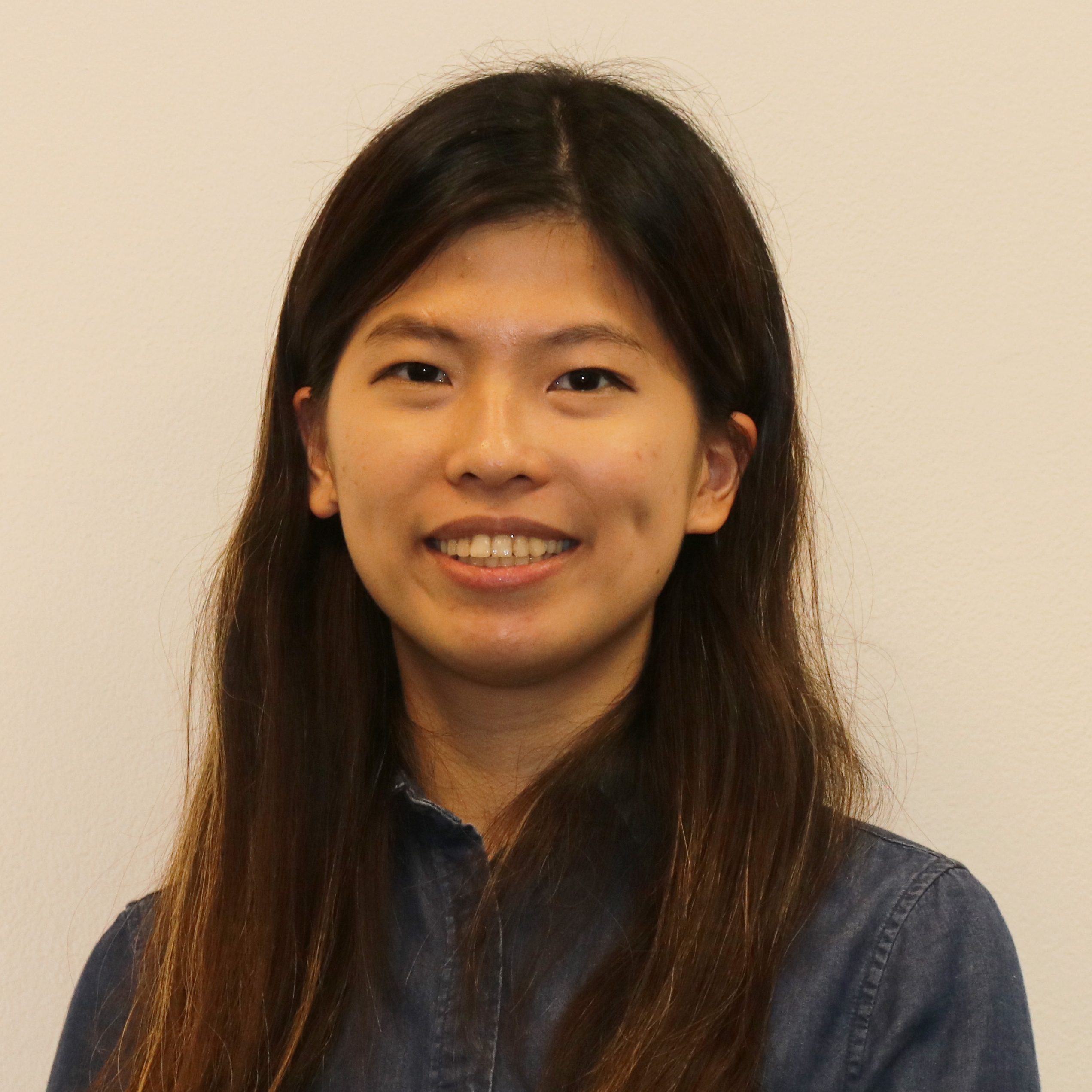International Workshop on Applied Machine Learning for Intelligent Energy Systems (AMLIES)
Co-located with ACM e-Energy Conference 2020, Melbourne, Australia
Overview Call for Papers Key Dates Keynote Speakers Schedule Organizing Committee Technical Program Committee Contact

Overview
The capacities of societal-scale infrastructures such as power grids, smart buildings, transportation and other energy systems are rapidly increasing, leading to Cyber-Physical Systems that can deliver human-centric values and energy services while enhancing efficiency and resilience. Technological advancements in sensing, learning, control and optimization hold enormous capacity to deliver intelligent energy systems of the future that are empowered to address pressing societal issues such as energy crisis, climate change and environmental pollution. There has been an increasing interest to use Machine Learning, Data Analytics and Internet of Things (IoT) in diverse energy systems including smart buildings, power systems, transportation systems etc., to drive applications related to modelling, control, fault and anomaly detection and optimization of energy, space and cost amongst others. This has led to improved energy efficiency, occupant comfort and productivity in smart buildings and enhanced system robustness and resilience in power systems.
However, the application of machine learning to these energy systems has also opened up new research challenges. To perform optimally, these algorithms require substantial amount of labelled training data. Collection and labelling of the data in complex systems such as power grids and buildings with complicated energy usage behaviors require considerable amount of expert knowledge and is often prone to security and privacy issues. Efficiently using the available energy data for inference, decision and control can prove beneficial in this scenario. Another challenge is the lack of direct measurements for important drivers of energy consumption, such as occupancy. Data from opportunistic sources (such as images or communication network data) can be adopted to overcome this challenge. This workshop seeks to bring together researchers to discuss such underlying challenges related to the application of Machine Learning to Energy Systems, including smart buildings, smart grid and transportation systems and to present proposed and ongoing work to address them.
Contact: amlies.workshop@gmail.com
Call For Papers
The workshop invites original papers that were not previously published and are not currently under review for publication elsewhere.
Topics of interest for this workshop include (but are not limited to) the following:
- Unsupervised Learning and few-shot learning for intelligent energy systems
- Transfer Learning, data-efficient learning and domain adaptation techniques for energy systems
- Generalized learning frameworks for energy systems enabled by Meta Learning and Multitask Learning
- Application of Machine Learning to fault and anomaly detection, performance benchmarking, measurement and verification (M&V), and design and retrofit decision support for energy systems
- Data security and privacy mechanisms in energy data analytics
- Reinforcement Learning in dynamic and uncertain environments (e.g., renewable integration)
- Modeling and decision support for building to grid interaction enabling grid interactive efficient buildings (GEB)
- Vulnerability analysis and robust decision-making against cyberattacks
- Data-efficient occupant behavior, indoor air quality and thermal comfort modeling, monitoring and control for buildings
- Certification and standardization aspects with respect to machine learning applied to energy systems
- Representation Learning for energy societal networks/ social games
Two types of contributions are solicited:
- Full papers, up to 8 pages in 9-point ACM double-column format (excluding references) and unlimited number of pages for appendices and references, single-blind.
- Short papers, up to 4 pages in 9-point ACM double-column format (excluding references) and unlimited number of pages for appendices and references, single-blind.
The submission must be in PDF format and be formatted according to the official ACM Proceedings format. Papers that do not meet the size and formatting requirements may not be reviewed. Word and LaTeX templates are available on the ACM Publications Website. Submission implies the willingness of at least one author to register and present the paper at the workshop.
Submission portal: https://amlies20.hotcrp.com
Key Dates
- April 30, 2020: Paper submission deadline
- May 21, 2020: Author Notification
- May 28, 2020: Camera ready submission deadline
- June 26, 2020: Workshops
Keynote Speakers
-
Costas J. Spanos, University of California, Berkeley
Keynote Title: TBA | Abstract: TBA
Bio: Costas J. Spanos is the Andrew S. Grove Distinguished Professor of Electrical Engineering and Computer Sciences at UC Berkeley, and the Director of CITRIS and the Banatao Institute. He is currently the Interim Director and CEO of the Berkeley Educational Alliance for Research in Singapore (BEARS). In 1988, he joined as the faculty at UC Berkeley, where he has served as the Department Chair for Electrical Engineering and Computer Sciences and the Associate Dean for Research in the College of Engineering. He received his master’s and doctoral degrees in Electrical and Computer Engineering from Carnegie Mellon University in 1981 and 1985, after which he worked for three years at the advanced computer-aided design group of the Digital Equipment Corporation. Professor Spanos has served in the technical committees of numerous conferences and was the editor of the IEEE Transactions on Semiconductor Manufacturing from 1991 to 1994. He has published more than 200 refereed articles, has received several best paper awards and has co-authored a textbook on semiconductor manufacturing. His current research interests include statistical data mining techniques for energy efficient applications, and is the leader of the Singapore-based SinBerBEST project, focusing on energy efficient buildings. In 2000, he was elected Fellow of the Institute of Electrical and Electronic Engineers for contributions and leadership in semiconductor manufacturing.
-
Francesco Fusco, IBM Research Europe, Ireland
Keynote Title:AI Modelling and Time-series Forecasting Systems for Trading Energy Flexibility in Electrical Distribution Grids. | abstract
The development and experimental validation of two sets of technologies to support distribution grid operators integrating high shares of renewable energy sources, based on a market for trading local energy flexibilities, are discussed. An artificial-intelligence (AI) grid modelling tool, based on probabilistic graphs, predicts congestions and estimates the amount and location of energy flexibility required to avoid such events. A scalable cloud-based time-series forecasting system delivers large numbers of short-term predictions of distributed energy demand and generation. Results are presented from the deployment of the technologies at three smart-grid demonstration sites across Europe, in the context of the EU-funded H2020 GoFlex research project carried out in a consortium with energy utilities, technology providers and research institutions.
Bio: Francesco Fusco is currently a Research Staff Member at IBM Research Europe in Ireland. His main research interests include AI-based time-series modelling and anomaly detection for Internet of Things applications. He developed expertise in data analytics for smart grids, particularly on large-scale energy forecasting systems. He also worked on fault diagnosis for water networks, with applications to leak detection. Francesco holds a PhD in Electronic Engineering, received at the National University of Ireland Maynooth (NUIM) in 2012, with a research project focused on control and forecasting of ocean wave energy conversion systems.
-
Gyorgy Zoltan Nagy, University of Texas at Austin
Keynote Title: Designing intelligent environments using reinforcement learning | abstract
Reinforcement learning (RL) has gained popularity in the research community as a model-free and adaptive control paradigm for the built environment, especially for building energy control. RL has the potential to enable inexpensive plug-and-play building controllers that can be implemented without necessitating potentially expensive control models (unlike model predictive control), and to coordinate multiple buildings for demand response, load shaping, and load shifting. In this talk, I will give an overview of the research activities in the Intelligent Environments Lab at UT Austin, and discuss two developed RL controllers: 1) HVACLearn, an occupant-centric controller to balance comfort and energy use at the zone level, and 2) CityLearn, and OpenAI Gym environment to facilitate development of Multi-Agent Reinforcement Learning controllers to study interacting buildings, and building-grid interaction. I will also layout and discuss some challenges that the research community should address to move the field forward.
Bio: Dr. Nagy is an assistant professor in the Department of Civil, Architectural, and Environmental Engineering at The University of Texas at Austin, directing the Intelligent Environments Laboratory since 2016. A roboticist turned building engineer, his research interests are in smart buildings and cities, renewable energy systems, control systems for zero emission building operation, machine learning and artificial intelligence for the built environment, complex fenestration systems and the influence of building occupants on energy performance. Dr. Nagy co-founded the award-winning high-tech spin-off Femtotools in 2007, and was a member of its board of directors until 2011. He holds a Diploma (BSc/MSc) and a PhD in Mechanical Engineering from the Swiss Federal Institute of Technology (ETH) Zurich.
-
Vikas Chandan, Pacific Northwest National Laboratory
Keynote Title: Data Driven Modeling, Control and Optimization to enable Grid Interactive Efficient Buildings | abstract
Buildings consume a significant amount of energy worldwide. In addition to their traditional role as consumers of energy, they are increasingly being viewed as resources that can help serve the grid better by providing grid services such as load shedding, shifting, modulation and generation. Therefore, there is a need to develop solutions that can enable both existing and future buildings to operate efficiently while ensuring occupant comfort and support these grid requirements. This necessitates research into new types of modeling, control and optimization methods beyond what was developed from an energy efficiency perspective alone. In this context, data driven techniques which leverage the ease of data availability from buildings are promising. In addition, data driven techniques must address the challenge of cost-effective and reliable deployment across a range of building types and systems. In this presentation, I will describe previous and ongoing work at the Pacific Northwest National Lab (PNNL) on the development of modeling, control and optimization solutions for buildings and energy systems in order to meet grid service, sustainability and comfort objectives. The presentation will cover themes of optimal control, adaptive control, and data-driven modeling and control design as applied to buildings, using examples from specific projects at PNNL.
Bio: Vikas Chandan is a Scientist in the Optimization and Control Group within the Energy and Environment Directorate at PNNL. His research specializes in the application of modeling, control and optimization to the area of energy systems, in particular building systems, with a recent emphasis on data driven techniques. At PNNL he is the Principal Investigator for the DOE BTO sponsored project on developing benchmark datasets for buildings. He is also actively involved in projects related to modeling and control of buildings to support grid interaction and transactive goals, Physics informed Machine Learning for Buildings, and demonstration of value provided by Machine Learning for buildings . He co-leads the Energy and Machine Learning Interest group within PNNL and is actively involved in several collaboration activities both inside and outside the lab with industrial and academic partners. Prior to joining PNNL, Vikas was a Research Scientist in the Next Generation Energy Systems Department at IBM Research from 2013 to 2016, where he contributed to several technologies related to smart, data driven energy management within buildings. He was awarded three outstanding technical achievement awards by IBM for his contributions, with one of his projects on re-using discarded laptop batteries receiving worldwide media acclaim . He received a B.Tech degree in Mechanical Engineering from the Indian Institute of Technology, Kharagpur, India in 2006 followed by M.S. and Ph.D. degrees at the University of Illinois at Urbana-Champaign in 2010 and 2013 respectively. He has co-authored around 50 peer-reviewed publications and co-invented 9 patents in the area of energy systems.
Workshop Schedule
The coloured entries correspond to 27th June at the dateline mentioned. All other entries correspond to 26th June at the mentioned dateline.
| PDT | EDT | London Time | HKT (27th) | AEST (27th) | Programme |
| 9.00-9.05 | 12.00-12.05 | 17.00-17.05 | 00.00-00.05 | 02.00-02.05 | Opening Remarks |
| 9.05-9.50 | 12.05-12.50 | 17.05-17.50 | 00.05-00.50 | 02.05-02.50 | Keynote 1: Costas J. Spanos, University of California, Berkeley |
| 9.50-10.35 | 12.50-13.35 | 17.50-18.35 | 00.50-01.35 | 02.50-03.35 | Keynote 2: Francesco Fusco, IBM Research, Ireland |
| 10.35-10.50 | 13.35-13.50 | 18.35-18.50 | 01.35-01.50 | 03.35-03.50 | Coffee Break |
| 10.50-11.10 | 13.50-14.10 | 18.50-19.10 | 01.50-02.10 | 03.50-04.10 | Paper 1: Optimizing carbon tax for decentralized electricity markets using an agent-based model |
| 11.10-11.30 | 14.10-14.30 | 19.10-19.30 | 02.10-02.30 | 04.10-04.30 | Paper 2: Reinforcement Learning based HVAC Optimization in Factories |
| 11.30-11.40 | 14.30-14.40 | 19.30-19.40 | 02.30-02.40 | 04.30-04.40 | Paper 3: HVACLearn: A reinforcement learning based occupant-centric control for thermostat set-points |
| 11.40-12.00 | 14.40-15.00 | 19.40-20.00 | 02.40-03.00 | 04.40-05.00 | Paper 4: Prospective experiment for Reinforcement Learning on demand response in a social energy saving game framework |
| 12.00-13.30 | 15.00-16.30 | 20.00-21.30 | 03.00-04.30 | 05.00-06.30 | Lunch Break |
| 13.30-14.15 | 16.30-17.15 | 21.30-22.15 | 04.30-05.15 | 06.30-07.15 | Keynote 3: Zoltan Nagy, University of Texas, Austin |
| 14.15-15.00 | 17.15-18.00 | 22.15-23.00 | 05.15-06.00 | 07.15-08.00 | Keynote 4: Vikas Chandan, Pacific Northwest National Laboratory |
| 15.00-15.15 | 18.00-18.15 | 23.00-23.15 | 06.00-06.15 | 08.00-08.15 | Coffee Break |
| 15.15-15.35 | 18.15-18.35 | 23.15-23.35 | 06.15-06.35 | 08.15-08.35 | Paper 5: Theoretical Development of Controller Transfer applied to Dynamical Systems |
| 15.35-15.55 | 18.35-18.55 | 23.35-23.55 | 06.35-06.55 | 08.35-08.55 | Paper 6: Unearthing Details of Time Series of Load: A Dual-scale Input Structured LSTM Approach |
| 15.55-16.05 | 18.55-19.05 | 23.55-00.05 (27th) | 06.55-07.05 | 08.55-09.05 | Paper 7: Understanding Distributions of Environmental Parameters for Thermal Comfort Study in Singapore |
| 16.05-16.15 | 19.05-19.15 | 00.05-00.15 (27th) | 07.05-07.15 | 09.05-09.15 | Closing Remarks |
Organizing Committee
|
University of California, Berkeley |
University of California, Berkeley |
University of California, Berkeley |
Technical Program Committee
|
|


